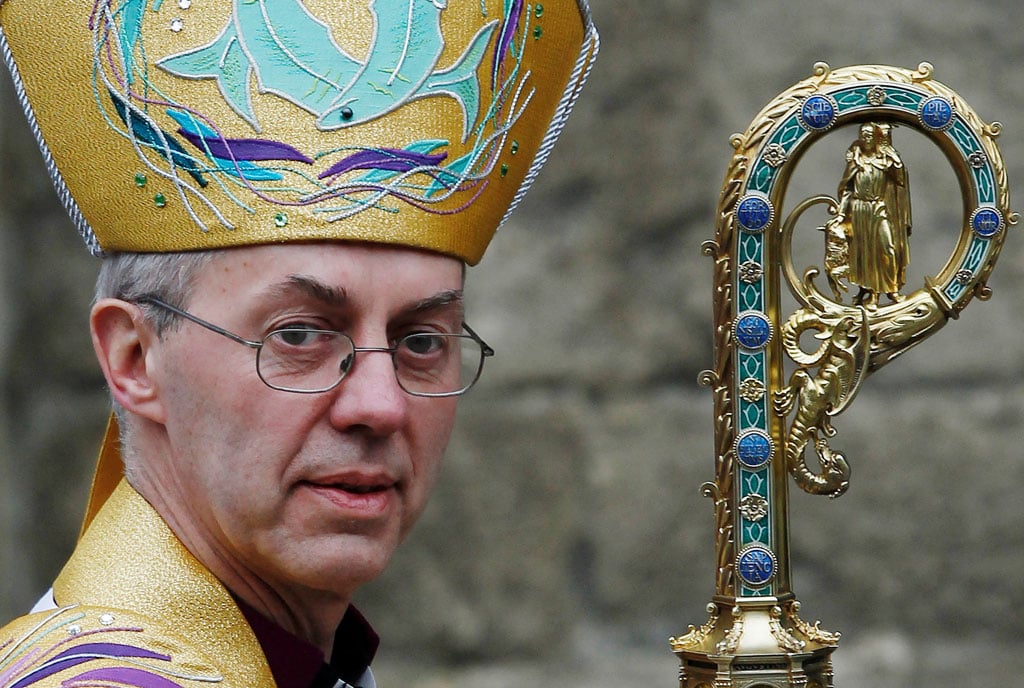How will the next leader of the Church of England be picked?

Justin Welby
What you need to know:
- Francis-Dehqani, who was ordained in 2017, just three years after the first woman bishop was appointed, was born in Iran and has spoken about how her brother was murdered in the aftermath of the Iranian Revolution.
The archbishop of Canterbury, Justin Welby, resigned over an abuse cover-up scandal on Tuesday, marking an unprecedented moment for the Church of England.
He becomes the first leader of the church, as well as the wider Anglican Communion of 85 million Christians worldwide, to be forced out in this manner, religious experts say.
Announcing he is leaving "in sorrow," Welby said the timing of his departure would be decided once a review of his remaining obligations had been completed.
The 68-year-old had been in the role since 2013, and would have been expected to retire around age 70.
Candidates
A period of consultation on the needs of the Church of England, as well as the Anglican Communion, will be followed by an appointment of a Crown Nominations Committee.
The committee will consist of 17 voting members, including the archbishop of York who is the second-most-senior bishop in the institution, another bishop elected by the House of Bishops, and representatives from the Anglican Communion, the Diocese of Canterbury, and the church's governing body - the General Synod.
It will be chaired by an Anglican, ideally in public life, chosen by Prime Minister Keir Starmer.
Assembling the committee could take a couple of months, David Thompson, emeritus professor of modern church history at the University of Cambridge, told Reuters, adding that the whole process could take up to six months.
What does the committee do?
The committee will make a recommendation to Starmer. If the prime minister accepts it, he will put the name forward to King Charles, who is the supreme governor of the Church of England.
Who are possible successors?
Three bishops have been tipped to succeed Welby as the 106th archbishop of Canterbury: Martyn Snow, the bishop of Leicester, Graham Usher, the bishop of Norwich, and Guli Francis-Dehqani, the bishop of Chelmsford.
Snow abstained in a church assembly vote on blessing for gay couples, while Usher is in favour of gay rights and has pushed for higher taxes on fossil-fuel companies.
Francis-Dehqani, who was ordained in 2017, just three years after the first woman bishop was appointed, was born in Iran and has spoken about how her brother was murdered in the aftermath of the Iranian Revolution.
She would be the first woman to become archbishop if selected.
Francis-Dehqani and Usher were among 44 bishops who signed a letter last year expressing regret that the authorisation of standalone services to bless same-sex couples had been delayed.
The new archbishop will likely face the same persistent divisions on same-sex relationships that Welby tried to balance during his 11-year tenure.
It has been a matter of contention not just in the wider Anglican Communion, which includes African churches where homosexuality is taboo, but also within the Church of England.
"The principal problem for the archbishop of Canterbury ... is that he combines the role of the primate of all England, with being the head of the Anglican Communion," Thompson said. "This is effectively a relic of empire, because that was the context in which the Anglican Communion developed.
"It increasingly in the late 20th century and the early 21st century has revealed a conflict of role which hasn't been satisfactorily resolved during Archbishop Welby's tenure."
In his resignation, Welby said his decision made it "clear how seriously the Church of England understands the need for change."
"For nearly 12 years I have struggled to introduce improvements," he wrote. "It is for others to judge what has been done."





